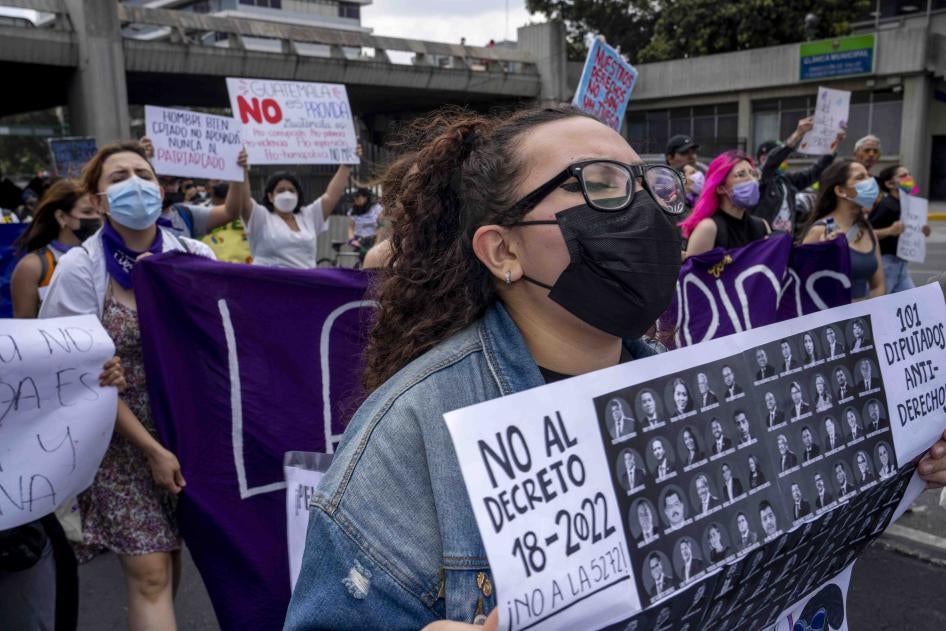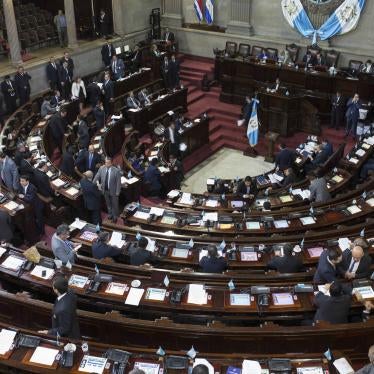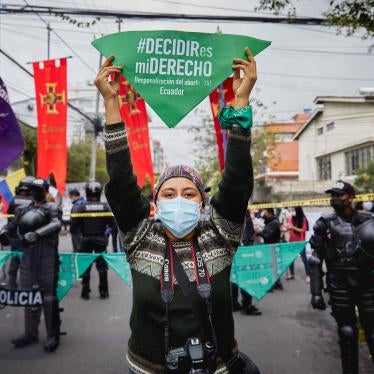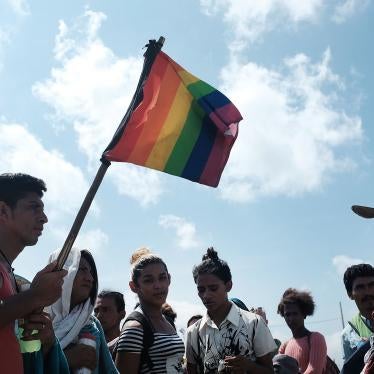For decades, March 8, International Women’s Day, has been a time for women around the world to take part in protests seeking recognition for our rights. But this year, Guatemala’s Congress chose March 8 to pass a bill that would have restricted the already limited reproductive rights for women and girls in the country. Yesterday, Guatemala's Congress shelved this bill, but Guatemala still lags well behind the rest of the region in recognizing women’s rights and protecting their reproductive health.
The decision to drop the bill known as Decree 18-2022 came after many, including Human Rights Watch, called out the danger it posed. President Alejandro Giammattei had already announced he may veto it and so the Congress beat him to it.
Under existing law, abortion is legal only when the life of a pregnant woman or girl is in danger, and penalties vary from one to twelve years in prison. Decree 18-2022 would have increased penalties and broadened the circumstances under which a women and others involved could be prosecuted.
It defined abortion as the “natural or provoked death” of an embryo or fetus and would have established prison sentences of up to 4 years for women who seek an abortion, and 10 years for those who “provoke their own abortion.” This could have led to prosecuting women for miscarriages, as has been documented in other countries. The bill also would have required two doctors, instead of one, to confirm that a pregnancy was life-threatening, making therapeutic abortion even harder to access. It also would have criminalized anyone who promotes and facilitates an abortion.
The expansion of criminal law to restrict abortion access would put the lives of women and girls at greater risk, but research has shown that such laws don’t decrease the number of abortions, only drive them underground where they put women’s lives and safety in danger. This bill not only would have endangered the rights of women and girls in Guatemala, but it also would have prohibited marriage equality and restricted comprehensive sexuality education.
President Giammattei had for months fueled anti-rights sentiment by stating that he would make Guatemala “the pro-life capital of Ibero-America,” strengthen the “family” and respect “life from conception.” On March 9, President Giammattei attended a ceremony organized by Christian groups in front of the government palace and declared it the “day for family and life.”
But then President Giammattei seemed to reverse course on March 10, distancing himself from the bill, publicly stating he would veto it because it violated international human rights law and the Guatemalan constitution. The law violates international human rights as it, among other issues, undermines women’s autonomy and puts women and girls’ lives and health at risk.
To respect human rights, Guatemala should follow the examples of other countries in Latin America that have made progress in easing restrictions on abortion. Recently Argentina and Colombia decriminalized voluntary abortion up to 14 and 24 weeks, respectively, to safeguard women's and girls' rights, including to health and nondiscrimination. In Mexico, abortion has been decriminalized in 7 states, although 25 more still criminalize it.
In Ecuador, following a Constitutional Court decision, Congress passed a law in February that would guarantee women and girls who are survivors of sexual violence access to abortion. Although President Guillermo Lasso partially vetoed it and sent it back to Congress for further deliberation on March 15, there is still hope that Congress will ensure the law upholds women´s rights. In Chile, President Gabriel Boric's program includes a government commitment to expand reproductive health, including access to abortion. Some progress has already been made on this issue. The Chamber of Deputies approved a measure in late 2021 to decriminalize abortion up to 14 weeks of pregnancy, with action pending in the Senate.
Some countries are making progress, and we should celebrate the gains and acknowledge the collective work of the various feminist movements. But it has not been an easy road, and many governments in the region – like Guatemala – still oppose the struggle for reproductive rights. The decision by Congress to archive the bill, together with Giammattei’s intent to veto a law that could have become the most restrictive abortion law in the region is the right one. But it is not enough to celebrate. Guatemala’s abortion laws lag the progress in the region and fall short of respecting international human rights law. Women and girls are paying the price.










